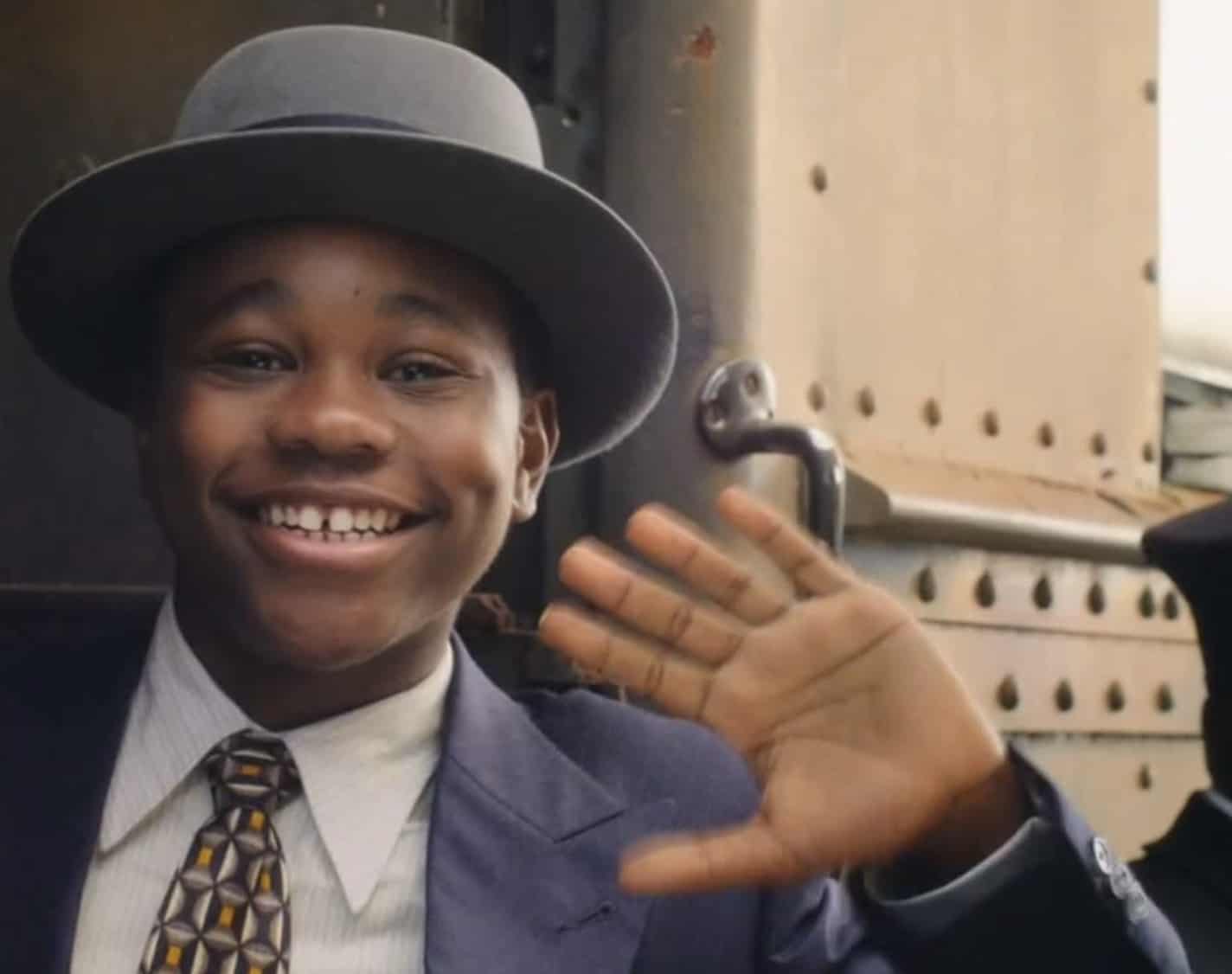Perhaps it is because we are now well into Lent, and the Stations of the Cross are being offered at parishes each week, but the Stations were all I could think of while watching Till, the new movie about the killing of 14-year-old Emmett Till in Mississippi in 1955.
Emmett Till was born in Chicago on July 25, 1941. He was raised there by his mother, who was originally from Mississippi. On August 21, 1955, when Till was 14 years old, he traveled to make his first visit to Mississippi to stay with his mother’s side of the family. He never returned from that trip. On August 28, Till was tortured and killed by two white men who thought the teenager had made advances on one of their wives at a grocery store a few days prior.
I’d like to point out three themes that can help us connect Emmett Till’s death and the crucifixion of our Lord.
Dehumanization
From the opening scenes of the movie in 1950s Chicago, it does not take long for the dehumanization of Black people to reveal itself. That dehumanization isn’t always bloody. One scene shows young Emmett Till, together with his mother, receiving an “invitation” to another part of a department store. Another shows a humiliating walk towards another part of the train during interstate travel when Emmett is on his way to visit his cousins in Mississippi. There is no bloodshed just yet, but certainly, there is behavior capable of making any witness’s blood boil.
It is precisely the differentiation, the discrimination, that Christ stood against in the Gospels. In fact, in the Gospel of John, standing against discrimination is how his ministry starts, removing the barriers of the Temple area. With the driving out of the money changers, Christ challenges the divisions between what is considered pure and impure, the sacred and the profane, the sacrificial system itself. No more would Gentiles, women, male Israelites, priests, nor the high priest be divided, each restricted to their respective parts of the worship space. An invitation for all to worship, if not live, as one. Going forward, it would be impossible to thank God without practicing justice. It is our bodies that would become temples.
Not long after this, in the Gospel of John, Jesus speaks to a Samaritan woman at the well. That is, Jesus puts into action what he has begun at the Temple. Divisions take a backseat to a mission that is both universal and inclusive. “But the hour is coming, and is now here, when true worshipers will worship the Father in Spirit and truth; and indeed the Father seeks such people to worship him.”1
Gethsemane
There was little violence in the apprehending of Till, just like Christ’s arrest in Gethsemane. We find out only later in the movie that, just like with Christ, it is not for lack of a desire or will to fight. The reality is more complex than a feud between families, or between a single man and a government official. Lynchings were quite literally state-sponsored, as was Christ’s own death. While perhaps not carried out by police or local elected leaders, they were among those in attendance.
What is more, the whole event was a twisted sort of celebration. Often “commemorated” with a photo that would be plastered onto a postcard and sent to family or friends. The story here goes back generations and spans borders of all kinds. This was far from a fair fight. In addition to the social realities and power imbalances, Til’s abductors were armed and showed up in the middle of the night. Till clearly doesn’t understand what is happening. He is young and innocent.
Although we see it at the moment, it will come to surprise Till’s own mother that other people of color are complicit in the killing of her son, albeit seemingly not of their own choosing. They were sharecroppers who lived and worked on the same land as the abductors, the killers. How free were they? Like the condemnation of Christ, we are all in the crowd. We all shout “Crucify him!” With Till, there is little need for shouting, a nod of the head from the white female accuser is all the condemnation needed. In the case of Christ, it was a kiss from Judas. Evil needs so little. There is no promise of money. In fact, money is offered by Till’s family in an attempt to avoid his capture, but it is refused. Like with Christ’s own death, money is not the primary objective, and weapons are used, but only by the capturers. The only solution, in the eyes of those “in power,” is the death of an innocent person.
Acts of the Apostles
The body of our Lord and Emmett Till’s body are both important to the truth-telling that must occur after their deaths. In Scripture, Thomas doubts the reality of Christ’s resurrection but is converted by the mere sight of Christ. Till’s mother doubts too, but instead of the resurrection, she doubts the crucifixion. When the casket first arrives from Mississippi, she shouts for it to be opened so that her son can breathe. As she views the corpse herself at the funeral home in private, she touches it, perhaps part of her coping, her conversion, and the start of a kind of resurrection. In the scenes that follow, we see that change from “just” a loving mother to not only that but also a committed activist for civil and human rights.
Although Civil Rights Laws would come only a few years after the death of Till, it’s clear that it’s not just the laws that need changing, but ourselves. It was only last year that the first Federal Antilynching Bill was passed, some 57 years after the brutal killing of Till.
During Lent, we might consider using a movie, like Till, or the headlines of death tolls that continue to climb from recent earthquakes, or a shipwreck of migrants off the coast of Italy to experience Christ’s Passion and death more tangibly. The text that flashes on the screen after the opening scenes of the film says, “The Crime that Changed the World,” and this promises a societal change following the death of Emmett. But if we are not willing to connect the story of Christ with our own stories or those we hear about in the news, whether it’s on the other side of the world or the other side of town, then we fall far short in responding to Christ’s invitation to follow him.
The dehumanization of others that we witness, and the Gethsemane moments we experience – like the apostles, like Till’s mother – ought to drive us to act to create a better world, beginning with our very selves. That may mean almsgiving, fasting, or prayer, but it may also be an invitation to do much more and for far longer than 40 days.
edited 03/22/23 6:06 AM
———
Cover Image: Jalyn Hall in Till (2022) from IMDB
- John 4: 21-22 ↩


